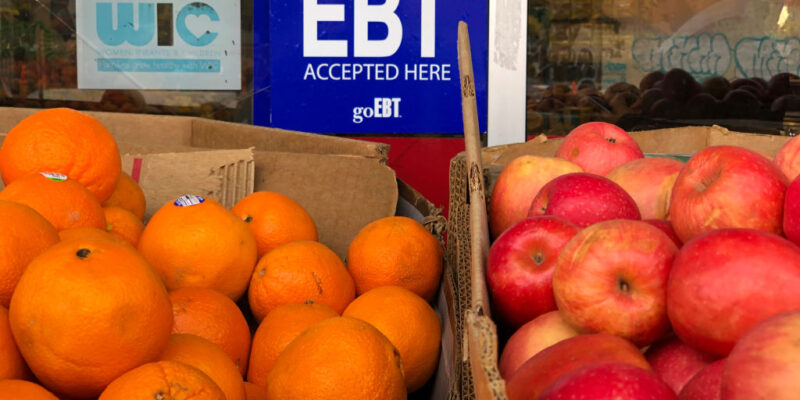This month kicks off momentous and welcome changes in Louisiana’s Supplemental Nutrition Assistance Program (SNAP), with an assist from Republican-led federal government changes, to the benefit of taxpayers and SNAP clients.
Much pearl-clutching and hand-wringing has occurred over the programmatic changes of the federal-state effort, as a result of budget reconciliation legislation passed earlier this summer. Endlessly and erroneously referred to by the political left and media as “cuts,” in reality, the changes – better restricting eligibility to citizens and lawful permanent residents, expanding the pool of individuals who must meet community engagement requirements, eventually penalizing states that pay insufficient attention to their inappropriate payment rates, and eventually shifting more of the administrative costs to states – promise a reduction of overall spending on it of up to 20 percent through fewer ineligible recipients and more efficient administration.
SNAP is generous, nationally adding $6.20 per person per day or a large portion of daily food expenses for a person willing to shop intelligently and to prepare food at home without overeating or excessive snacking. This is in addition to the myriad of other welfare programs for which someone may qualify under the same criteria.
Unfortunately, along with other welfare programs, SNAP administration has been careless relative to the impact it has on a recipient’s overall health. The sad fact of the matter is that SNAP participation, mirroring participation generally in welfare programs, is positively related to obesity in Louisiana, which discouragingly among low-income individuals on public assistance is bumping along at around 45 percent, well above the state overall and national averages, and among children in that group at about 41 percent is nearly double the state’s overall rate.
Of course: give people more money to buy food and other assistance that takes care of things which will leave more discretionary income that can go to food, and they eat more. This illustrates the root cause of the persistent failure of American welfare policy to reduce poverty in any way over the past six decades: poverty is not something defined or caused by insufficient funds, but by attitudes that trap people into it, creating insufficient personal funds. Worse, policy such as that which had been with SNAP often encourages the formation and shaping of attitudes that minimize people’s chances of escaping poverty.
Thus, the left is flummoxed by reductions in SNAP spending, erroneously seeing that as a lesser commitment to reduce poverty, when in reality the programmatic changes are promoting better targeting of aid where needed and deserved (defined as those either making a good-faith effort to do the things to exit poverty or, because of bad luck, are in a bad position to try to do so). And while the reforms may steer better taxpayer resources, in this instance on their own they may not improve the welfare receipt/poorer health indicator relationship.
Generally, people who have a future orientation – adopting attitudes forgoing present enjoyment in favor of sacrifice for future success – likely are less likely to be obese because of that attitude. But a problem can arise if policy discourages this and specifically could do so with these reforms in isolation.
With fewer SNAP dollars out there circulating, likely two negative things could happen that could strengthen the relationship SNAP has with obesity and the poorer health that comes with it. First, with margins so thin in the grocery business, smaller operations more likely to exist in smaller populated areas and in urban areas at risk for being a “food desert” or those concentrating on healthier foods will face a significant loss of business that could be the difference between staying open and folding. If the latter, then SNAP clients may have to undertake additional expense to access food at a greater distance or to choose more expensive convenience store options. Second, those who become ineligible for SNAP may choose cheaper food options. In both cases, as less healthy food choices are cheaper, this could have an adverse impact on their overall health, including higher obesity as cheaper food tends to have ingredients exacerbating that.
Which is why what Louisiana has done is so significant to counter this. Joining other states, the Republican Gov. Jeff Landry Administration petitioned for and was granted by the federal government a waiver to restrict SNAP spending from occurring on less healthy foods, such as on candy and sugary drinks. Thus, instead of creating an incentive for those whose market conditions reduce their options and/or increase their costs to make a vertical change in consumption – more lesser-quality food – this policy encourages them to make a horizontal one – cut out less healthy foods. This encouragement for clients to forgo the less-healthy and thereby have resources to buy the more-healthy that will help alleviate market dislocations which could result from the reforms.
Add to that a new law doing something similar in schools plus adding to consumer information in meal service correctly uses policy to promote attitudinal change that benefits both clients and taxpayers. This with the SNAP reforms actually do something to improve the lives of the poor, rather than just keep on throwing money at the problem of poverty.
Advertisement
Advertisement

